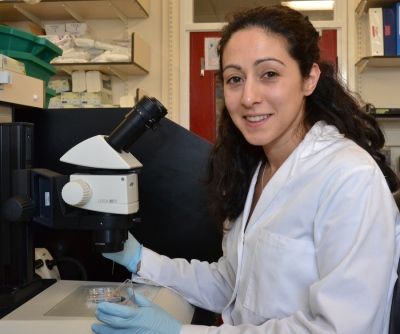This article is more than 1 year old
Brit boffins get green light to edit human genome
Groundbreaking research could help fertility treatment ... or create custom humans
UK scientists have been given the green light to use the CRISPR gene editing technique to experiment on unused human embryos in what is described in a boon to biological research.
The Human Fertilisation and Embryology Authority (HFEA) granted approval to London's Francis Crick Institute to explore the earliest moments of human life using the latest genetics research techniques.
It is also the first time such research has been cleared by a Western Government regulator.
Scientists in China have tinkered with the DNA of embryos and last year announced they ad altered a gene to correct a blood disorder.
It will remain illegal to implant a manipulated embryo into the womb of a woman.
Francis Crick Institute developmental biologist Dr Kathy Niakan will use the pioneering CRISPR-Cas9 gene-editing technique to alter genes in healthy human embryos in research lasting a week after fertilisation when embryos reach about 250 cells.
The CRISPR-Cas9 technique was discovered in 2012 by Dr Jennifer A Doudna who found the nuclease was perfect for cutting and modifying DNA, offering a means to effectively treat disease and some of the world's most intractable conditions. The shortDNA sequences which is CRISPR is present were first found in 1987.

Dr Kathy Niakan. Image: Francis Crick Institute.
Dr Niakan was approved to conduct research into embryos five months after the Chinese breakthrough research was announced, but it is the first time gene editing has been approved in the UK.
Nature reports her team's first experiment will stymie the OCT4 master regulation gene responsible for forming the foetus.
Dr Niakan told the Australian Broadcasting Corporation's AM program the work is critical to understanding human development.
"In order for us to understand the significance of these genes which we believe are critically important for human development we need to study them directly in the human embryos because at the end of the day human embryos are truly unique," Dr Niakan said.
Crick director Paul Nurse said the research will enhance understanding of in vitro fertilisation success rates.
"I am delighted that the HFEA has approved Dr Niakan's application," Dr Nurse says in a statement.
"Dr Niakan's proposed research is important for understanding how a healthy human embryo develops and will enhance our understanding of IVF success rates, by looking at the very earliest stage of human development - one to seven days." ®
